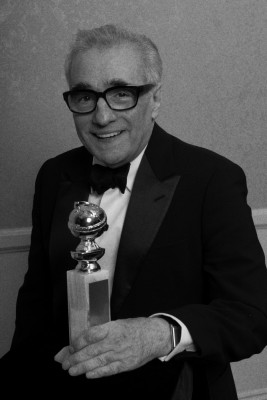
- HFPA
FROM THE ARCHIVES: SCORSESE’S REAL LIFE GOODFELLAS

by Jack Tewksbury
For forty years the HFPA has recorded interviews with famous and celebrated actresses, actors, and filmmakers. The world’s largest collection of its kind — over 10,000 interviews — is now in the Academy of Motion Pictures Arts & Sciences Margaret Herrick Library. The audios are fascinating. Below is an excerpt: in 1990, at the time GoodFellas came out, Martin Scorsese recalled how the real goodfellas came into his life as a young boy growing up in New York’s Little Italy. GoodFellas went on to receive six Golden Globe nominations. Throughout his career, Scorsese collected three Golden Globes and a Cecil B. deMille award.
“I grew up in a neighborhood like the one we see in my film GoodFellas. Except it was a tenement in Manhattan, not in Queens. I was one of the kids playing in the street. Some people were nicer to us, others were nastier, but we grew to know them as people first. They used Irish and English nicknames, nothing to do with Italian names, like Don.
I started to be aware that certain people were treated differently. You could gather how powerful they were by the way people moved around them. They sat quietly but you could feel the presence of power emanating from them.
Later on we thought that the ones who were boisterous, wore loud clothes, and were more openly brutal, were the wiseguys. But we found out later that it’s the quieter ones,who control things from the backrooms of coffee shops, who are the real GoodFellas.
And in the area where I grew up, many of the young boys aspired to become gangsters like them — or, like me, to be priests. Our heroes were either one or the other.
In America there are twenty million Italian Americans, among them Supreme Court justices, governors, senators, doctors, scientists. Of the twenty million, maybe only four thousand of these are GoodFellas, organized crime members, according to the FBI. So it’s a very small aspect of the community.
We can argue about the extent of the phenomenon, about the constant portrayal of them in books and films, but we cannot deny their existence. Twenty years ago there was an attempt to deny it completely, but it failed.”

